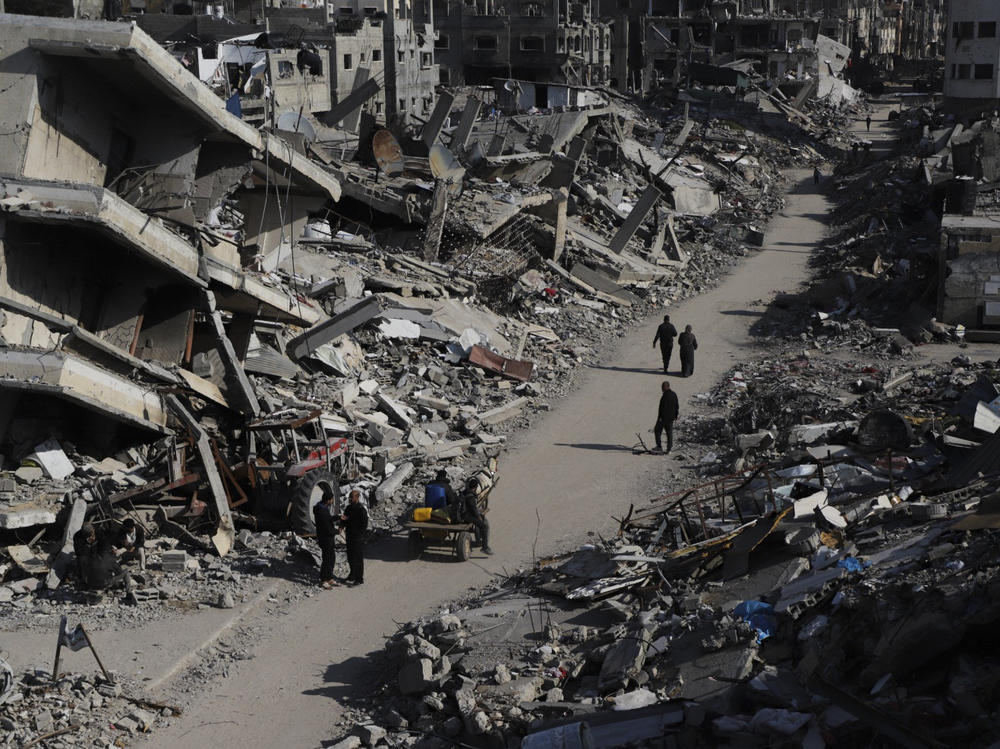Section Branding
Header Content
Is Israel perpetuating a cycle of radicalization rather than ending it?
Primary Content
You're reading the Consider This newsletter, which unpacks one major news story each day. Subscribe here to get it delivered to your inbox, and listen to more from the Consider This podcast.
1. Netanyahu's end goal.
Israeli Prime Minister Benjamin Netanyahu has had one stated goal since Israel began its military campaign in Gaza six months ago: a complete "victory" over, and eradication of, Hamas. As recently as February, Netanyahu framed victory as the key to peace and security in Israel.
But some experts — like Ambassador Dennis Ross, a former U.S. Middle East envoy — have warned that fully eradicating Hamas, or any terror group, is difficult.
33,00 Palestinians have been killed so far, with 13,000 of them children, according to the Palestinian Health Ministry. Some geopolitics researchers, like H.A. Hellyer with the Carnegie Endowment for International Peace, believe that if that number continues to grow, so does the possibility that groups like Hamas could be further radicalized.
2. How ideologies find ways to live on.
Ross cites the U.S. military's response to ISIS in the 2010s as an example of how difficult it is to win victory over an idea. He told NPR that the U.S. was able to defeat the group militarily, but that you can't get rid of a belief.
"We still have 3,000 forces in Iraq for one reason; to prevent ISIS from coming back. We have 900 in Syria to prevent ISIS from coming back. And the truth is, there are pockets of ISIS today, because ISIS as an idea has not been eradicated," he said.
3. The impact of Israel's campaign on its security.
Hellyer doesn't believe Israel's military campaign is close to achieving its goal.
"I don't think it's possible to destroy Hamas. I think at best, you can radically degrade its military capacity. And I'm not sure that that's really what they've managed to do over the past six months," he told NPR.
Hellyer adds the current situation between Israel and Hamas could just fuel the radicalization.
"With the civilian death toll being at where it is, I reckon Hamas will actually have a lot of people that will be willing to be recruited in order to defend themselves against further Israeli attacks," he said.
"None of this is aiming us towards de-escalating what's going on. On the contrary, it's escalation upon escalation."
- To hear more about how this impacts Israel and the U.S.'s perception among the international community, listen to the full Consider This podcast episode.
For sponsor-free episodes of Consider This, sign up for Consider This+ via Apple Podcasts or at plus.npr.org. Email us at considerthis@npr.org.

